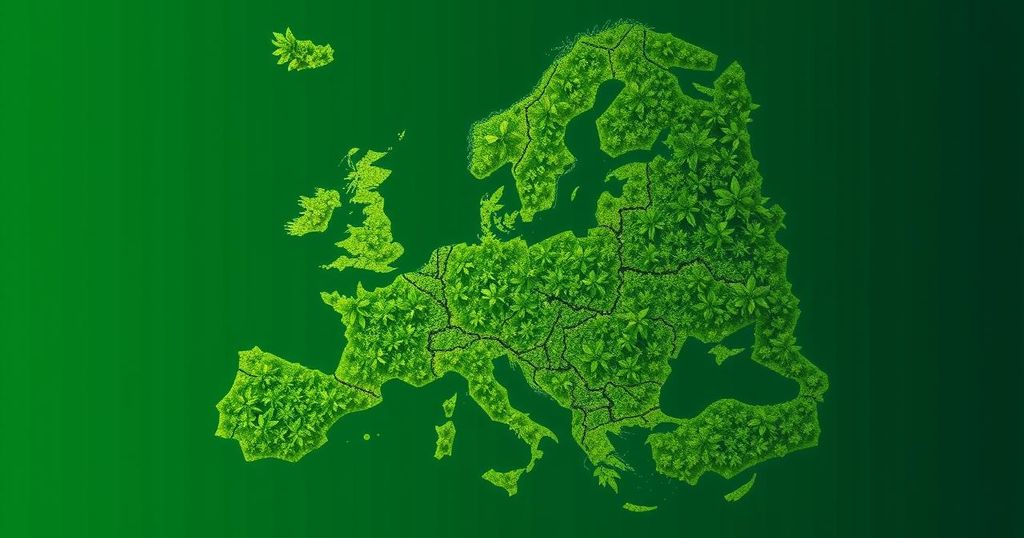The article analyzes the strategic use of climate change narratives by pro-Kremlin media, particularly in the lead-up to COP 29. It highlights the shift from climate denial to a tactic of undermining Western governments by accusing them of hypocrisy on climate issues. The piece underscores the use of these narratives to reshape perceptions of Western elites and their policies, demonstrating the politicization of climate discourse within the context of ongoing geopolitical tensions.
As the UN Climate Change Conference (COP 29) draws near, Russian state-controlled media has increasingly adopted a specific strategy of climate discourse. This strategy acknowledges climate change but simultaneously employs it as a weapon to undermine Western credibility and promote anti-European Union (EU) sentiments. Russian outlets no longer dismiss scientific consensus but manipulate the topic to illustrate perceived hypocrisy among Western nations, particularly the EU, claiming reliance on Russian gas instead of promoting renewable energy solutions. These narratives are tailored to specific audiences; for instance, Spanish-language affiliates target leftist audiences in Latin America and Spain, while also attempting to engage conservative Spanish-speakers in the United States by pushing contradictory narratives. Coverage in these outlets tends to depict climate change measures with skepticism, while they occasionally present the warming climate as advantageous for Russia’s agricultural prospects. Pro-Kremlin commentators continue to introduce climate change denial into their narratives, although mainstream Russian media recognizes the current climate emergency. The skepticism often portrays Western governments as using climate change agendas to disguise ulterior motives, thus framing the EU and its leaders as incompetent or misguided. These attacks often ridicule neutral discussions around climate policies, using social media to amplify dissenting voices. Examples of mockery include critiques of environmental taxes, wherein they frame such measures as absurd or cult-like. In various articles, the Western response to climate change is derided as ideological madness, with allegations such as the BBC fueling a climate hysteria. Outlandish conspiracy theories also circulate, suggesting that powerful elites, such as the Rockefellers, orchestrate climate change narratives to establish authoritarian control. In a convoluted turn, the coverage even delves into bizarre conspiracy theories, alleging that the British bank NatWest manipulates climate narratives to enact a ‘new world order’ via a carbon footprint tracking tool. Pro-Kremlin outlets have gone so far as to implicate US climate projects in natural disasters, fundamentally utilizing climate change discussions to depict Western states as nefarious actors. Thus, these narratives reveal a consistent goal: utilizing the climate dialogue to dismantle the credibility of Western institutions and their environmental policies.
The piece examines the evolving narrative within pro-Kremlin media regarding climate change as the COP 29 conference approaches. It discusses how Russian state-controlled outlets have transitioned from outright denial of climate science to leveraging climate change discussions as a critique against Western governments. This strategy not only undermines the credibility of those governments but also positions Russia in a more favorable light on the international stage. The discourse reflects broader geopolitics surrounding climate change and the narratives crafted by state media to influence perceptions in various audiences, especially those susceptible to anti-Western rhetoric.
In conclusion, the alignment of pro-Kremlin media’s climate narratives serves as a clear illustration of the strategic manipulation of environmental topics to achieve political ends. By recognizing climate change while simultaneously employing it to question the integrity of Western policies, these outlets execute a calculated approach meant to resonate with various audiences. This approach exemplifies how climate change discourse is not merely about environmental issues but also about shaping political perceptions and narratives in a polarized geopolitical landscape.
Original Source: euvsdisinfo.eu






